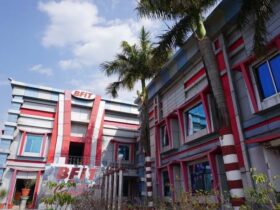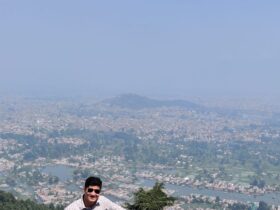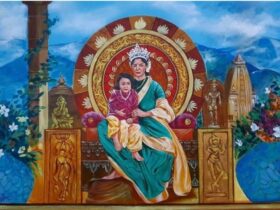Robert V. Taylor
We have much to learn from Nelson Mandela’s leadership grounded in generosity of spirit, authenticity and moral authority that transcends human divisiveness. Two things stand out about his leadership legacy — his open mindset and the choice to make human calculations rather than political ones.
South Africans adulate his unique transformational leadership of their country. The human family celebrates that, in the particularities of the South African experience, Mandela offered courage and hope to a world too often accustomed to revenge, retaliation, partisan politics, personal gain and lack of vision. It is a vibrant enduring legacy.
During his 27 years of imprisonment for leading the anti-apartheid movement Nelson Mandela was vilified by the South African government as the embodiment of evil. In spite of the prison conditions of Robben Island, designed to crush his spirit, he continued to nurture and expand the vision of the Freedom Charter of the African National Congress which sought a country in which all races would live together in a democratic society.
The attempt to silence and diminish Mandela was an unmitigated failure — a truth acknowledged by F.W. De Klerk, the South African President, whose negotiations with Mandela led to his release from prison in 1990. De Klerk spoke of the moral failure of apartheid’s unjust and cruel divisions.
When Mandela reappeared on the world stage on February 11, 1990 he told the world, “Our long march to freedom is irreversible.” In that moment it was clear he had never left the world stage; he was re-entering it with even greater moral gravitas.
While Mandela’s leadership was marked by a lack of rancor, bitterness or revenge it is useful to think of two constant themes that guided him.
Open mindset leadership. A friend of mine had a private meeting with Mandela several years ago. He confessed his nervousness to me about what to ask Mandela that would not seem insignificant before settling on inquiring about what he had learned about leadership. He was surprised by the response.
Mandela said the most important thing he’d learned is that you have to have an open mindset. As my friend looked quizzical Mandela explained that most leaders rise up through the ranks of an organization and come to office with others expecting that they are owed something by the leader. This, he said, usually creates a closed mindset that leaves little room for progressive or transformational leadership.
In his first year as the democratically elected president of South Africa Mandela provided a clue as to how his open mindset approach would inform his actions. South Africa was scheduled to host the 1995 Rugby World Cup and the odds were that their own team stood little chance of winning.
Citing the pressing problems facing the country, many of his top advisers tried to dissuade him from engaging the predominantly white home team. They were constrained by the closed mindset of the sports paradigm of apartheid in which soccer fans were primarily black while rugby fans were predominantly white.
Mandela chose to engage the rugby team by actively encouraging them to win the World Cup, which they did. His open mindset reinforced his transformational leadership, not by talking about systemic changes or poring over political strategies, but by engaging an entire nation. The entire country was mesmerized by his level of interest in the home team.
Mandela took the race based assumptions and divisions and used them to reframe a vision of how things might be. He was not willing to be imprisoned in a stultified past. He refused to be confined and defined by the expectations of those who, under his presidency, were part of the new power structure. Courage and generosity of spirit joined together with his open thinking reminding the world of the possibilities of transformative leading.
Making Human Calculations. In the Clint Eastwood movie Invictus, which tells the story of Mandela’s role in inspiring the rugby team, there is a telling moment when one of his advisers warns him to make political calculations about the cost of supporting the team. He challenges that assumption by saying, “It is a human calculation.”
Unlike the dull and politically calculated leadership we have come to expect as the norm from so many leaders, Mandela’s human calculation inspired people to see beyond narrow confines and create a more expansive view of themselves and others.
The human calculation reflects more than just Mandela’s generous spirit; it serves to remind people of the oneness that his friend Desmond Tutu speaks of. It is leadership that refuses to cede decisions to fear and divisiveness, choosing instead to believe in the human goodness discovered in our commonality.
Nelson Mandela is honored to the degree that we embrace the transformative leadership marked by his open mindset and human calculations. Then we participate in the courageous and generous authentic leadership that is his vigorous legacy.
(Courtesy: Huffington Post)
















Leave a Reply